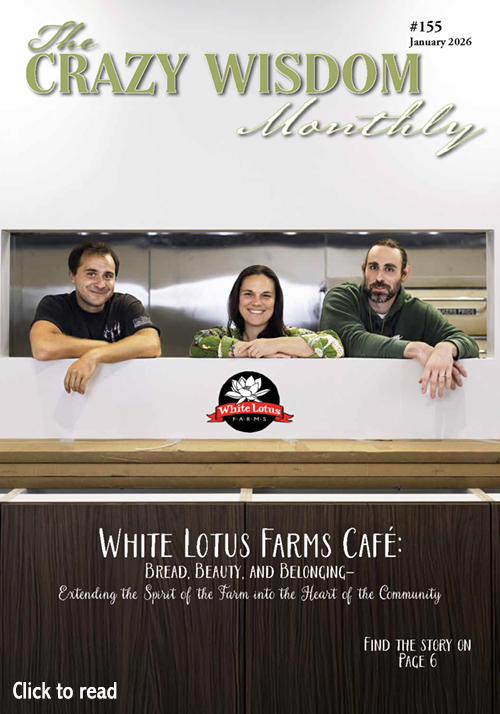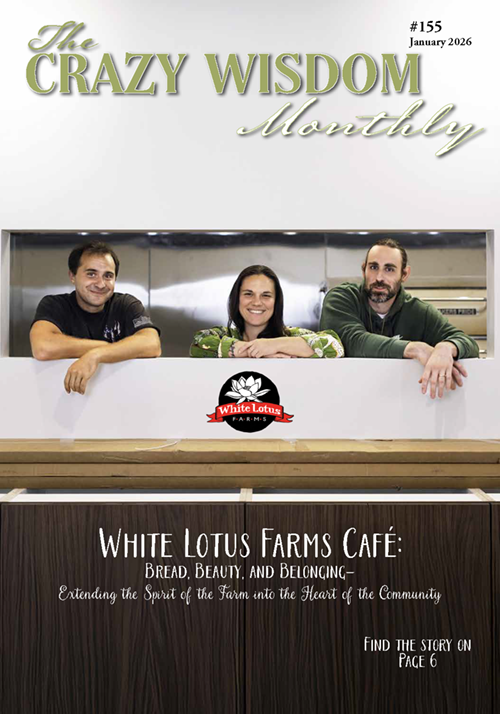The subtle energy system has always been integral to humanity’s weave of existence. Though the media tends to focus on seven major chakras in the Hindu/yogic tradition, there is commonality across Cherokee, Incan, Pueblo, Tibetan Buddhist, and Sufi Muslim mysticism beliefs to name just a few. That being understood, there are major and minor chakras throughout the body—at every joint, nerve bundle, palms of the hands, souls of the feet, nipples, and more.
Kids in the Community—Abilities in Action: Resources and support for kids with special needs and their families
Raising a child with special needs comes with unique challenges, but it also brings moments of incredible growth, resilience, and joy. The proper support and strategies can make all the difference—whether it's navigating therapies, advocating at school, or creating a home environment where a child feels empowered. From practical tips to expert insights, community groups and carefully curated summer camps and classes, special needs children and their families will not just get by but will truly thrive. Every child deserves the chance to shine, and every family deserves the tools to help them do it.
Conscious Parenting—Elimination Communication: Potty Training the Ancestral Way
For the modern toddler parent, potty training is an important—and often overwhelming—rite of passage. With an especially willful child, potty training can devolve into begging, bribing, breakdowns, and giving up. The common phrase repeated on modern mommy blogs and parenting influencers is to “wait until your toddler is ready!”
Freebirth in Ann Arbor: Why Women are Choosing to Birth Outside the System
Pregnancy and childbirth is a time of immense transformation. For some women it is the most beautiful day of their lives, but for so many more, the process of giving birth is a traumatic memory marked by surgery, violation, and a loss of control. In an act of conscious rebellion against this standard, women are choosing to look to the past and choose to birth the way we were always intended to: unmonitored, unmolested, and free. One such woman I talked to, “Dana,” describes her birth as being, “incredibly straightforward without any drama.”
Conscious Parenting: Navigating Negative Thought Flow
“I don’t really like myself,” my teen blurted out in the middle of a seemingly mundane conversation we were having last week. He tightened his lips to hold back emotion. I paused, as I noticed my jaws clench. Surprised by what he declared, I felt my eyes stinging as salty tears began to trickle into my eyes. My heart felt heavy, longing to simply scoop him up into my lap like I did when he was young, soothing him with kisses on his soft forehead.
Reilly Campbell: Sovereign Birth Worker
In October, I sat down with my good friend Reilly Campbell for a discussion about birth, life, Ann Arbor, and everything in between. An Austin, Texas transplant, Campbell can best be described as a ray of sunshine. Though only 25, she is wise far beyond her years and serves as an inspiration to anyone looking to walk with women on the path from maiden to mother and beyond.
Kids in the community: Winter Boredum Busters
When the chill of winter sets in and the days grow shorter, it's easy for kids to feel stuck indoors with nothing to do. But winter doesn't have to be boring! From exploring local spots and discovering wildlife in its winter habitat to cozying up with a good book, trying out hands-on crafts, or creating a snow-themed masterpiece at home, there's plenty to keep young minds busy and curious all season long. All it takes is a little creativity to make this frosty time of year fly by.
Conscious Parenting: Prepping for Baby: Find the Right Doula for You
Imagine knowing all the things, having a supportive partner, and knowing that you don’t have to remember everything. Imagine knowing that someone else has eyes out for your best interests without worrying about ulterior motives. Imagine that someone is watching out for your partner as well! It can feel like such a load off your shoulders to know that there is someone there who is familiar with the process.
The Symphony of Development: Exploring the Importance of Music in a Baby’s Growth
In the delicate journey of a baby’s life, music weaves a melody that resonates far beyond the nursery walls. The impact of music on a baby’s development encompasses cognitive, emotional, social, and physical domains. Incorporating music into a baby’s early experiences is not just a source of joy but a powerful catalyst for holistic development.
Babywearing 101: A Crash Course in Safety, Comfort, and Ease
The world is constantly being blessed with the arrival of new little ones, and statistically speaking, you have or will become the parent, grandparent, aunt, or uncle of a brand-new baby. Emerging into a world full of new sights, sounds, and sensations, many babies feel overwhelmed by the number of stimuli they are exposed to and never want to leave their caretaker’s side. Congratulations. This is a perfectly normal baby! Human beings are classified as carry mammals, much like monkeys, and we are designed to have our babies close to us at all times—hence the velcro baby situation many caretakers find themselves in. Unlike monkeys however, our babies do not emerge from the womb with the necessary skills to effortlessly hang onto us, leading many to be confused as to what to do with a baby that never wants to be put down.
Leaps of Faith: Empowered Bumps and Boobs
It’s okay. Go ahead and laugh at her company’s name. Emily Stone would be flattered. And to emphasize the play on meaning behind Empowered Bumps and Boobs, she would probably even hand you her favorite promotional product—a pen with a squishy breast at the top of it.
Motherhood as a ReVillaging Rite of Passage
Almost four years into my personal journey into motherhood, I have learned that some of my challenges are wildly common. Near-constant sensory and logistical overwhelm, deconstructing of (well-intended) pre-baby idealism, hard-to-communicate grief and resentments, and the occasional dose of blinding hot rage or anxiety. My journey has also been, however, a powerful invitation to a rite of passage through and beyond what author Beth Berry calls “Motherwhelm.”
Kids Can Cook, Too! And Why They Should…
Cooking isn’t just about whipping up tasty treats (although that’s definitely a big part of the fun). Empowering and nurturing children’s culinary skills extends far beyond the kitchen. It’s a fantastic adventure where kids explore, create, and learn skills that will stick with them for life. Think of it as a mix of delicious experiments and add a sprinkle of essential life lessons on top. From crafting scrumptious snacks to understanding the fuel that keeps us going, kids learn the importance of nutrition, gain confidence, and feel accomplished. In today’s fast-paced world, introducing kids to the wonders of cooking is an invaluable gift, offering them a foundation for a lifetime of healthy eating habits and a deeper appreciation for the culinary arts.
Conscious Parenting: Harnessing the Power of Talking Out Loud — The Teddy Bear and the Talker
Imagine your child is trying to figure something out, like what to do for the summer. As your child talks to you, what kinds of questions do you feel drawn to ask? Do the questions have more to do with supporting your child in exploring the parts of the conversation your child wants to explore, or more to do with your own concerns? What could enable your child to get the benefit of having plenty of room to talk out loud and to take the conversation wherever your child wants to go with it?
The Current State of Sexual Health Education in Michigan
It wasn’t until later that I learned that my experience with sexual health education was not uncommon. I assumed, as a kid whose whole world was based around school, that everything in the curriculum was what was required to be successful in life. At the time, I didn’t realize how career-driven it was: Math, Science, English, and History were the four main subjects. Nothing about growing your own food, repairing clothes, doing your taxes, paying a mortgage, how to have fulfilling relationships, how to maintain good mental health practice, and more.
Book Review: I'll Show Myself Out by Jessi Klein
In a world awash with bad news and the relentless cascade of life’s endless absurdities, Jessi Klein emerges as a comedic voice of reason, a beacon of humor and humanity amidst the chaos. Her eagerly anticipated second essay collection, I’ll Show Myself Out: Essays on Midlife & Motherhood takes readers on a riotous journey through the tangled web of motherhood, midlife, and the quirkiness of modern existence.
Quietly Noticing
I stood about twenty feet away from my two-year-old waiting to push her on a swing or do a count down while she hyped herself up to glide down a slide. I had just gotten done with a three-mile run with her in a stroller at the loop at Hudson Mills. The only way we get through these runs is a lot of snacks and the promise of playground time, and I was ready for the playground time. To me, playground time is a time that I don’t have to keep my brain on high alert. Rinoa would play and I would catch my breath and not have to figure out how to run, push, grab, and unwrap a snack all at once as I had been doing for thirty minutes prior.
Screen Time Solutions
As an elementary school teacher for almost three decades, I’ve witnessed a dramatic shift in recent years in the behavior and habits of children. Further, I’ve seen an alarming rise in obesity and violent tendencies during that time. I attribute these changes, in part, to excessive screen time as well as a lack of parental involvement.
Elements Preschool
I discovered Elements Preschool a few months ago during my extended early childhood education studies. To my delight, it is not only a place of discovery for children, but also for adults. Soon after being introduced to Elements Preschool, I started working with Kirsten Voiles, the founder and director, with whom I share a passion for education and the arts.
Conscious Parenting: Ele's Place Ann Arbor--A Home for Healing Arts
Ele’s Place Ann Arbor is a healing center that provides peer grief support for children, teens, and their families in Ann Arbor as well as the surrounding southeast Michigan area, free of charge, for as long as a family needs. Ele's Place Ann Arbor is the only nonprofit in our community dedicated solely to helping children and teens work with, and through, grief in a peer-based setting.































































































































































































